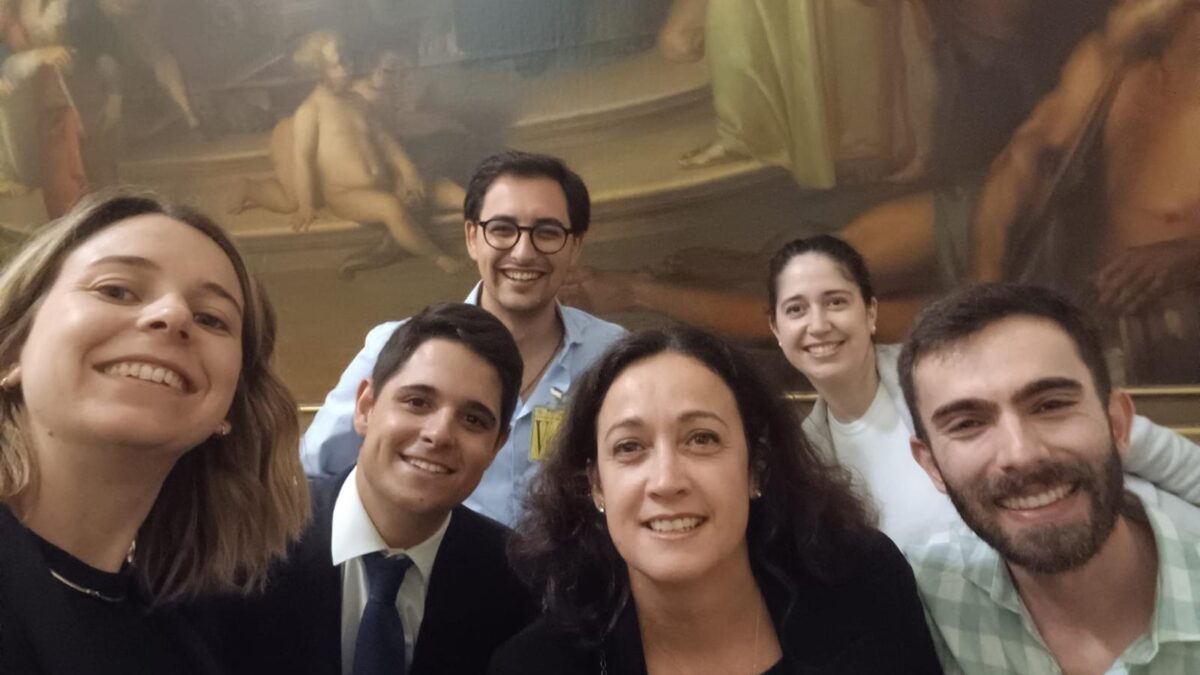
Helena Moniz (at the center) with a few member of the Bridge AI project, on the occasion of a hearing at Assembleia da República
Bridge AI is at full speed: website and major event program are settled
Helena Moniz was born and raised in the Azores islands, and this is not a mere detail when telling the story of how the Bridge AI project, led by INESC-ID, came to life. In response to a call on Science4Policy, opened by Science and Technology Foundation (FCT), it aims to bring together ethics, law, and literacy regarding the European legislation on Artificial Intelligence, known as the AI Act.
“By choosing this thematic area, we are primed to advance Portugal’s readiness for impending AI regulations and fortify our nation’s position as a frontrunner in responsible and innovative AI implementation”, stresses the INESC-ID researcher, from the Human Language Technologies scientific area and a professor at Universidade de Lisboa. “We want to make a difference. How will a Portuguese citizen relate to the law, and how are we going to implement it?”, Helena adds. “How will my aunt in the Azores understand it?”
The project, now running at full speed, has a brand-new website and the agenda for its public presentation event on October 19 is set. Confirmed speakers include Pedro Conceição, Director of the Human Development Report Office at the United Nations.
Bridge AI was born out of the mission-driven spirit of young researchers like Joana Lamego (Champalimaud Foundation), Nuno André, and António Novais (both from Unbabel). It aims to foster a strong connection between academia, business, and the public sector. The project promotes AI literacy in society and serves as a valuable tool for Portuguese decision-makers, helping them make informed, evidence-based decisions.
To achieve its goals, five working groups have been established, each focusing on different aspects of AI regulation, approved last May at the European Counsel. These groups will provide recommendations and conclusions at the major event on October 19, which will be held at Champalimaud Foundation, one of the project’s partners.
Bridge AI also includes case studies, in partnership with companies like Unbabel, Priberan and Sword Health, that work in the fields of AI and Health technology. The Centre for Responsible AI is another key member, along with two law firms, Carnegie Mellon Portugal and the British and the American embassies.
“It’s important to strike a balance between legislation and innovation. The law should not be a barrier”, notes Helena Moniz.
With a funding of 40.000 euros, FCT emphasizes in its evaluation document that “the study is perfectly aligned with the thematic line and adjusted to the national context.”
Text by Sara Sá, Science Writer | Communications and Outreach Office, INESC-ID / © 2024 INESC-ID
Images | © 2024 INESC-ID/Bridge AI
